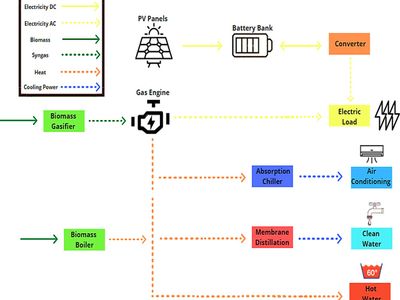In the Polygeneration course, simultaneous generation of several energy services is in focus, for example electricity, heat, cold, purified water or dry air. It can take place by using a combination of several renewable energy sources to feed a system of energy converters. To achieve increased sustainability, a large part of the energy losses are captured and utilised for simultaneous generation of different energy services.
The following subject areas are covered:
- Properties of different energy converters and their suitability for different system configurations.
- Efficiency compared with separate generation of such energy services.
- Environmentally and economically positive and negative properties.
- Bridging of temporal variations in the inflow of energy and the need for energy services.
- Cogeneration.
- Control principles and control strategies.
- Integration of intelligent energy buffers and their interplay with control systems and energy converters.
- Thermo-economic optimisation of Polygeneration systems.
- Sustainability consequences (positive and negative) of to introduce Polygeneration systems.
The course intends to integrate the different engineering skills that the students have acquired,and apply them to small-scale combined energy systems- Polygeneration.
